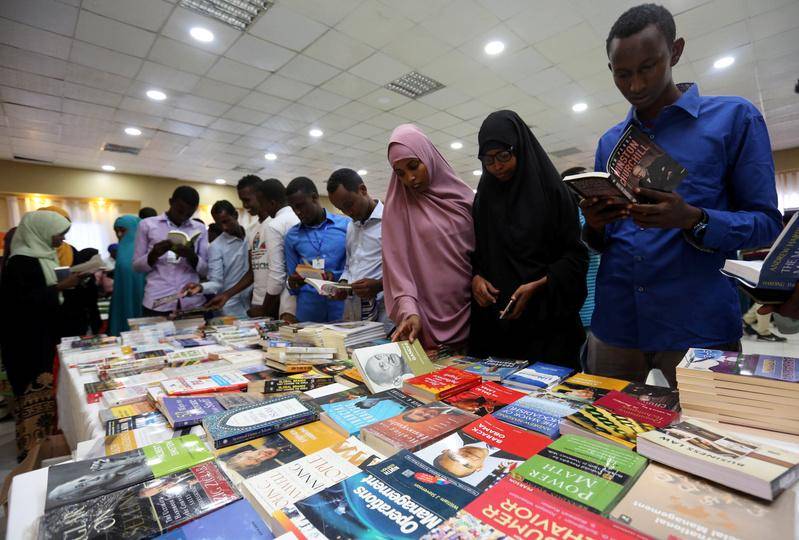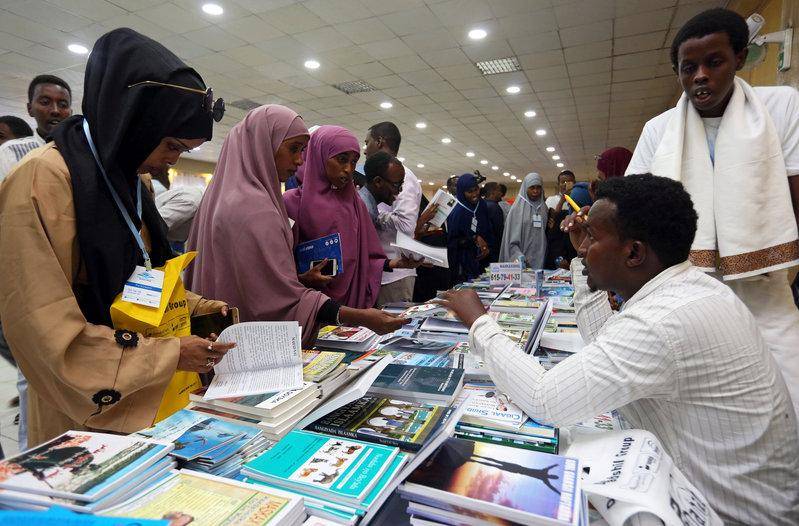MOGADISHU (Reuters) - Long associated with pirates, famine and bombs, Somalia showed a different face to the world this week as it welcomed foreign writers for the first time to its annual book fair.
The event took place for the third time in the scarred seaside capital Mogadishu, but until now security was too precarious for overseas authors to take part.
Their participation is a sign that things are changing as government troops, backed by African Union peacekeepers, claw back territory from Islamist insurgents in the Horn of Africa country.
Still, there were 60 guards on duty on Friday outside the hotel where the book fair was taking place, as well as plainclothes security inside.
“In 2015, authors were afraid, but now security has improved,” said organizer Mohamed Diini. “But authors are not yet brave (enough) to write or present books on the chaos of the country.”
Somalia has been riven by civil war since 1991, when clan-based warlords overthrew a dictator and then turned on each other. Although the Islamist al Shabaab militia was pushed out of the capital in 2011, it continues to mount almost daily bomb attacks and assassinations.
That didn’t stop 31 authors, including a Rwandan, three Kenyans and a British doctoral student, from presenting their books, Diini said.
Fartumo Kusow, a Somali-Canadian fiction writer who holds dual nationality, made her first trip home in 27 years.
“It’s like the country has been hit by an earthquake. No building is where it is meant to be,” she said sadly. “The landscape by the sea is different.”
Her novel, “The Tale of a Boon’s Wife”, tells a story that reverberates across cultures: a love affair forbidden by powerful clans. It was published in Canada by Second Story Press, she said, but only after she had received 104 rejection slips.

Rwandan author Dominik Alonga said she came to the book fair out of solidarity - like Somalia, her tiny east African nation is also inextricably associated with past violence.
“When you hear Rwanda, you think ‘genocide’. So I write about culture to show the sympathetic and the good side of life,” she said.
Abdirahman Ali Mohamed, 21, is an accountancy student from Mogadishu who works as a waiter between classes. His book, “A Country whose Citizens Migrate”, tells the story of an ordinary life in a failed state.
“I was born after central government collapsed and during a civil war. So writing in my own mother tongue was a pain in the neck because I did not get a good teacher who could teach Somali literature,” he said with a grin.
“But I studied the literature of many foreign countries by myself... I want Somalis to read my book so their life can be a little bit better and they can stay home.”






